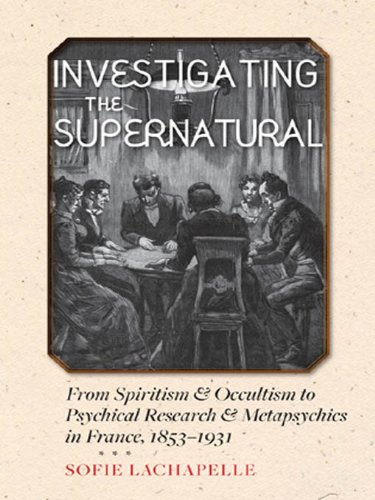By Bernadette Bensaude-Vincent,Christine Blondel
The Last Wolf: The Hidden Springs of Englishness by Robert Winder
By Robert Winder
It is frequently assumed that the nationwide identification needs to be an issue of values and ideas. yet in Robert Winder's brilliantly-written account it's a land equipped on a fortunate set of common elements: the island surroundings that made it maritime; the rain that fed the grass that nourished the sheep that supplied the wool, and the wheat fields that supplied its brownies and ale. Then got here the seams of iron and coal that made it an commercial giant.
In Bloody Foreigners Robert Winder informed the wealthy tale of immigration to Britain. Now, in The final Wolf, he spins an English story. vacationing the rustic, he appears for its hidden springs no longer in royal pageantry or politics, yet in panorama and history.
Medieval clergymen with their flocks of sheep . . . cathedrals outfitted by means of wool . . . the 1st cargo of coal to depart Newcastle . . . marital contests on a village eco-friendly . . . mock-Tudor supermarkets - the tale is studded with those and different English things.
And it begins through taking a look at an important factor England did not have: wolves.
Investigating the Supernatural: From Spiritism and Occultism by Sofie Lachapelle

By Sofie Lachapelle
Plantations and Protected Areas: A Global History of Forest by Brett M. Bennett
By Brett M. Bennett
On The Verge by Rebecca Costa
By Rebecca Costa
“There should be no higher virtue than sure bet of the longer term. now not in nature. now not in enterprise. no longer in governance.”
So starts off Rebecca Costa’s much-awaited exploration of foresight: “the crowning fulfillment of human ambition.” in keeping with Costa, advances in mammoth info, predictive analytics, genomics, synthetic intelligence, and different breakthroughs have made it attainable to pinpoint destiny effects with impressive accuracy—cracking the door to what Costa calls predaptation: the power to evolve prior to the fact. by no means prior to has the data had to stay clear of threat, get the leap sooner than others, or organize for the inevitable been so basically inside grasp.
Through attention-grabbing real-life examples, Costa unearths how expertise has introduced international locations, companies, and contributors to the sting of clairvoyance. but, our skill to behave on foreknowledge usually falls short—causing leaders to squander the benefit of preemption. To counteract this failure, Costa illuminates 12 rules of model, and predaptation, used to achieve fast-moving environments.
In the spirit of the easiest in renowned technology, On the Verge is a landmark exam of big-picture forces affecting society this day. Costa’s distinct sociobiological viewpoint, mixed together with her skill to mix humor, breaking technology, and insightful own tales, distinguishes her as some of the most vital girl idea leaders of our time.
Escape from the Ivory Tower: A Guide to Making Your Science by Nancy Baron

By Nancy Baron
during this sensible and pleasing consultant to speaking technological know-how, Baron explains how you can have interaction your viewers and clarify why a selected discovering issues. She explores how one can ace your interview, advertise a paper, input the political fray, and use new media to hook up with your viewers. The ebook comprises suggestion from newshounds, choice makers, new media specialists, bloggers and a few of the millions of scientists who've participated in her conversation workshops. a few of the researchers she has labored with have long gone directly to develop into famous spokespeople for science-related concerns. Baron and her protégées describe the hazards and rewards of “speaking up,” the right way to take care of feedback, and the hyperlink among communications and management. the ultimate bankruptcy, ‘Leading the best way’ deals suggestions to scientists who are looking to turn into brokers of switch and make your technological know-how topic. no matter if you're an absolute newbie or a pro veteran seeking to hone your talents, get away From the Ivory Tower might help make your technological know-how understood, favored and maybe acted upon.
Nylon and Bombs: DuPont and the March of Modern America by Pap A. Ndiaye,Elborg Forster

By Pap A. Ndiaye,Elborg Forster
What do nylon stockings and atomic bombs have in universal? DuPont. The chemical enterprise of DuPont de Nemours pioneered the improvement of either nylon and plutonium, enjoying an enormous position within the upward push of mass intake and the emergence of the infamous "military-industrial complex." during this attention-grabbing account of the lives and careers of Du Pont’s chemical engineers, Pap A. Ndiaye deftly illustrates the contribution of to the genesis of a dominant post–World conflict II "American version" connecting prosperity with security.
The customer and army dimensions of twentieth-century American historical past are usually studied individually. Ndiaye reunites them through analyzing Du Pont's improvement of nylon, which symbolized a brand new lifestyle, and plutonium, which was once synonymous with annihilation. Reflecting at the reviews and contributions of the company's engineers and physicists, Ndiaye strains Du Pont's transformation into one of many company types of yankee luck.
Religion and the Challenges of Science by William Sweet,Richard Feist
By William Sweet,Richard Feist
Does technological know-how pose a problem to faith and non secular trust? this query has been a question of long-standing debate - and it maintains to trouble not just students in philosophy, theology, and the sciences, but additionally these serious about public academic coverage. This quantity presents history to the present 'science and faith' debate, but focuses besides on topics the place contemporary dialogue of the relation among technological know-how and faith has been quite concentrated.
The first subject offers with the heritage of the interrelation of technology and faith. the second one and 3rd subject matters take care of the consequences of modern paintings in cosmology, biology and so-called clever layout for faith and spiritual trust. The fourth subject matter is anxious with 'conceptual concerns' underlying, or implied, within the present debates, similar to: Are medical naturalism and faith suitable? Are technological know-how and faith our bodies of information or practices or either? Do faith and technological know-how provide conflicting fact claims?
By illuminating modern dialogue within the science-religion debate and through outlining the choices on hand in describing the relation among the 2, this quantity might be of curiosity to students and to contributors of the expert public alike.
Gut Feminism (Next Wave: New Directions in Women's Studies) by Elizabeth A. Wilson
By Elizabeth A. Wilson
Anthropology of the Fetus: Biology, Culture, and Society by Sallie Han,Tracy K. Betsinger,Amy B. Scott,Rayna Rapp
By Sallie Han,Tracy K. Betsinger,Amy B. Scott,Rayna Rapp
As a organic, cultural, and social entity, the human fetus is a multifaceted topic which demands both varied views to totally comprehend. Anthropology of the Fetus seeks to accomplish this by way of bringing jointly experts in organic anthropology, archaeology, and cultural anthropology. members draw on learn in prehistoric, historical, and modern websites in Europe, Asia, North Africa, and North the USA to discover the organic and cultural phenomenon of the fetus, elevating methodological and theoretical matters with the final word aim of constructing a holistic anthropology of the fetus.